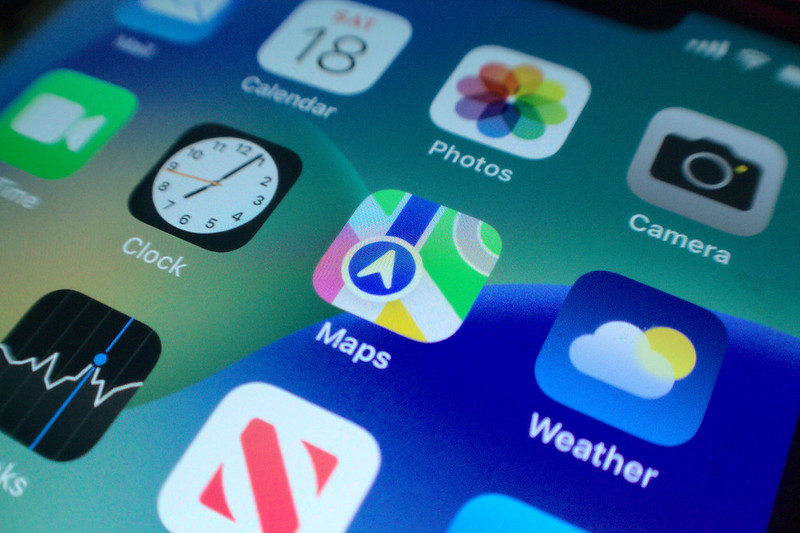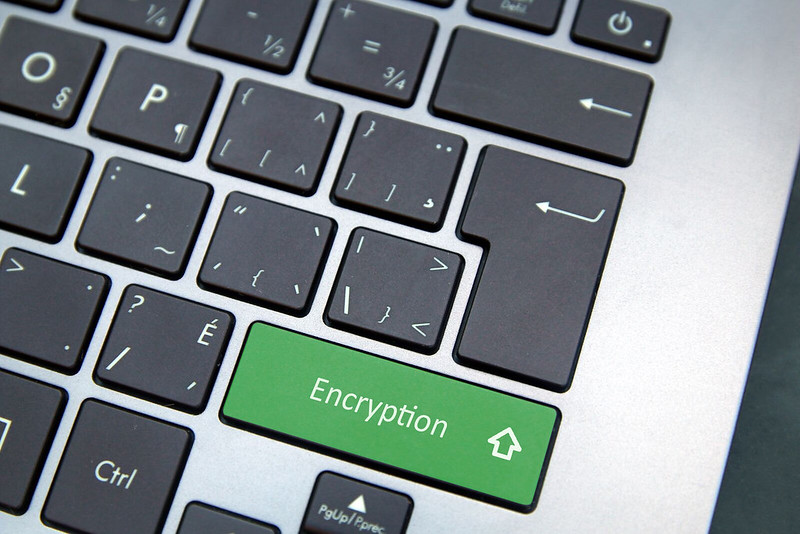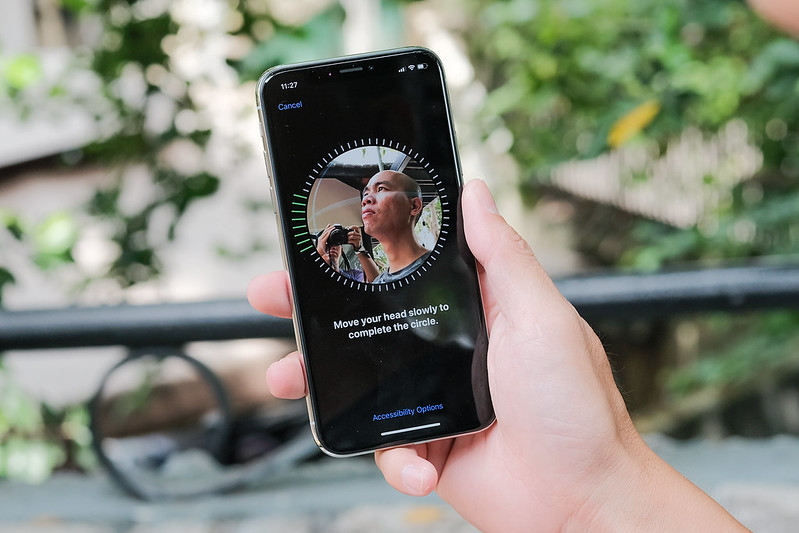If you are looking for a smartphone that can protect your personal data and keep you safe from cyberattacks. Then you might want to consider choosing an iPhone over an Android device. Here are 10 reasons why Apple iOS is more secure than Android.

1. Closed System
Apple’s closed ecosystem means that they have complete control over the hardware and software on their devices. This allows them to tightly control what apps are available on their devices. This ensures that all software running on iOS is secure. By contrast, on open platforms like Android, anyone can develop an app and make it available for download. This increases the risk of malware and other security issues.
2 App Store Review Process
Apple has a strict review process for apps submitted to the App Store, helping to weed out potentially malicious apps. Apple reviews every app before it gets approved for the App Store. This helps to check for things like malware, inappropriate content, and violations of Apple’s guidelines. Making it less likely that users will accidentally download an app that could harm their device or compromise their data
2. iOS Sandboxing: Each App Runs It’s Own Isolated Space
In iOS, every app operates within its own sandbox. This creates a secure and isolated environment for the app to run in. This app isolation improves iOS security by preventing apps from accessing data or resources outside of their designated area. Each app must request specific permissions to access sensitive data, ensuring that user data remains private and secure. By running in a sandbox, an app that is compromised by malware is contained within its own environment. This prevents the malware from accessing data from other apps or the system itself. With iOS app sandboxing, users can feel confident that their data is protected while using their favourite apps.
3. Encryption
iOS devices come with hardware-based encryption that protects user data. Encryption scrambles data so that only someone with the decryption key can read it. Apple uses hardware-based encryption, which means that all your data on your device and in iCloud is encrypted by default. This can only be accessed with your passcode or biometric authentication. This protects your data from unauthorized access even if your device is lost or stolen. If someone gains physical access to an iPhone, they won’t be able to access its data without the decryption key.

4. Limited Access
iOS devices have limited access to the underlying file system and kernel. This makes it more difficult for malware to gain access to sensitive data. The file system and kernel are the core components of an operating system. Controlling access to these components is a key part of securing a device. Making it difficult for malware to gain access to sensitive data like passwords, credit card numbers, and other personal information.
5. iOS Has Regular Software Updates
Regular software updates are an essential part of maintaining the security and performance of any device. The iPhone is no exception. Apple releases regular software updates for iOS to address any security vulnerabilities. Additionally to fix bugs that may cause issues with the device’s performance or usability. These updates are available over-the-air. Meaning they can easily be download and installed without the need for any special tools or expertise.
By installing these updates, you’ll ensure that your iPhone is protected against the latest security threats. Such as malware or other types of attacks. Additionally, these updates often include new features and enhancements that can improve the overall functionality and user experience. Overall, iOS’s regular software updates are a crucial aspect of maintaining the security and performance. Ensuring that your iPhone continues to function smoothly and securely over time.
6. iOS Has A Smaller Market Share
Historically according to the latest figures iOS has a global market share of around 27% while Android has around 72% . This means that Android devices are more widely used. Additionally more diverse than iOS devices, which are exclusively manufactured by Apple. There are possible advantages to having a smaller market share. Theoretically iOS provides less of an attractive target for hackers and cybercriminals searching for exploits and vulnerabilities.
7. iOS Has Fewer Viruses And Malware
Another key advantages of iOS is that it has fewer viruses and malware than other operating systems. Decreasing the chance of your device getting infected with malicious software that can harm your device or steal your data. According to a study by F-Secure, 97% of all malware targets Android devices, while less than 1% targets iPhones.
8. Face ID
Face ID is a biometric authentication that uses advanced sensors and algorithms to scan your face and verify your identity. This works by projecting a grid of infrared dots onto your face. It then uses the reflection of those dots to create a 3D map of your face. This 3D map is then compared to the stored image of your face to determine if it’s a match. The process is quick and seamless, and able to recognize your face even when you’re wearing glasses or a hat.

One of the benefits of Face ID is its high level of security and is extremely difficult to fool. Apple claims that the chance of someone else unlocking your iPhone with Face ID is about one in a million. Machine learning adapts to changes in your appearance over time, such as changes to your hairstyle or facial hair.
In contrast, traditional password-based authentication systems can be easily compromised if someone gains access to your password. Similarly, fingerprint scanners can be fooled by a variety of means. Including high-quality fake fingerprint or a latent fingerprint left on a surface. Face ID, on the other hand, is designed to be resistant to such attacks. It is widely considered to be one of the most secure forms of biometric authentication available on smartphones today.
9. iOS Has Better Privacy Features
Numerous advanced security features are offered by iOS. These give more control over how and when your personal information is accessed and used by apps. When apps requests access to data, such as your location or contacts. You’ll be prompted with a pop-up message asking for your permission to grant access. This gives you the ability to decide whether or not to allow the app to access your information.
In addition, iOS has a feature called App Tracking Transparency. This requires apps to ask for permission before they can track your activity across other apps and websites. This helps to prevent companies from building a detailed profile of your online behaviour for advertising purposes.
Safari, the default web browser on iOS, also includes a feature called Intelligent Tracking Prevention. This blocks third-party cookies and other trackers from following you across the web. This helps to prevent companies from collecting data about your browsing habits and using that information for targeted advertising. Overall, iOS offers a range of privacy features that giving greater control over your personal information. Ultimately helping to protect your privacy online.
10. Apple Pay
Apple Pay is a mobile payment and digital wallet service developed by Apple. It enables you to use your iPhone securely and easily to make payments when doing your daily shop. Additionally this can be used in apps and on the web. Your credit or debit card and their numbers are neither stored on your device nor on Apple’s servers. Apple Pay assigns a unique Device Account Number and encrypts it. Apple then securely stores it in the Secure Element of your device. For each transaction, a one-time unique dynamic security code is generated and used for authorization. This ensures your actual card details are never shared with merchants or intermediaries.

To use Apple Pay at a physical store, hold your iPhone near a contactless reader. Authenticate the payment with Face ID, Touch ID, or your passcode. For in-app or online purchases select Apple Pay as the payment option. Follow the same process and authenticate with Face ID, Touch ID, or your passcode. Apple Pay also works with some transit systems and allows you to store and use loyalty and rewards cards.
Apple Pay used NFC (Near Field Communication) technology. This feature enables secure transmission of information between devices when they are placed in close proximity to each other. Apple Pay also uses the complex and cryptic method called tokenization. Substituting sensitive data with unique identification symbols whilst retaining all the essential information about the data without compromising its security.
In Summary
Overall, objectively it seems iPhones are more secure than Android devices for a number of reasons. Firstly, Apple’s closed ecosystem means that they have complete control over the hardware and software on their devices. Allowing tight control of app availability on their devices and ensure that all software running on iOS is secure. Secondly, the App Store review process helps to weed out potentially malicious apps. Thirdly, iOS’s sandboxing security measure protects user data and prevents malware from spreading or accessing other apps and system files. Fourthly, iOS comes with hardware-based encryption that protects user data. This include limiting access to the underlying file system and kernel. Apple provide regular software updates that increase device longevity. Provide less of a target for viruses and malware and feature Face ID and better privacy features.
That said, no system is perfect. You’ll need to be careful about what apps you download. Exercise awareness of what links you click and the networks you connect to. All in all it comes down to this. If you want a smartphone that offers you more protection with peace of mind and privacy. Then the iPhone might be the right choice for you .
